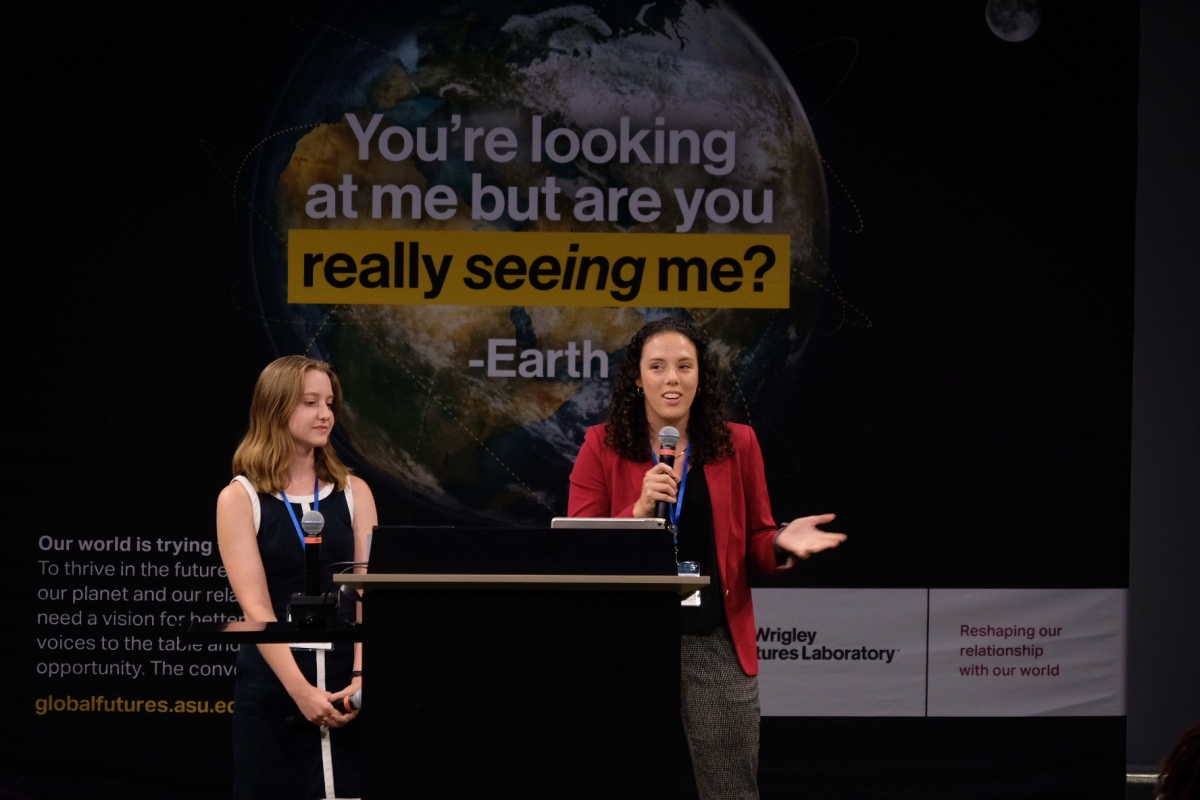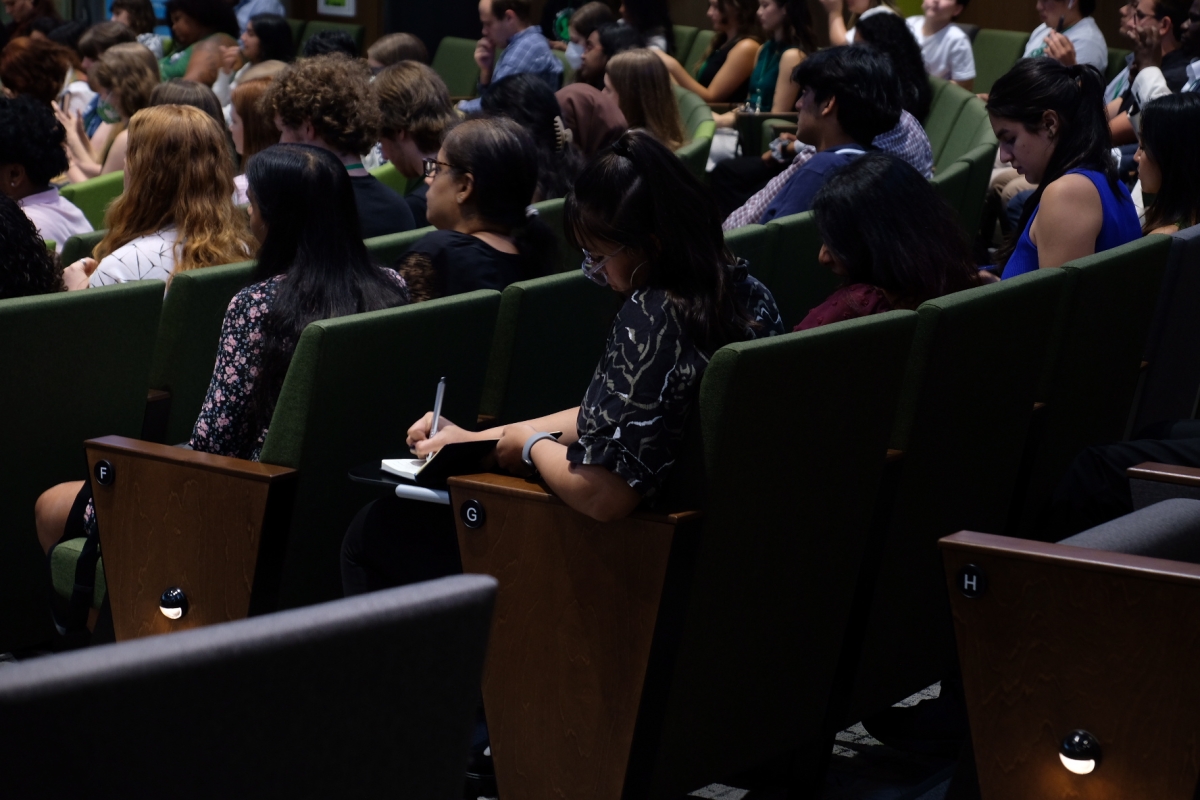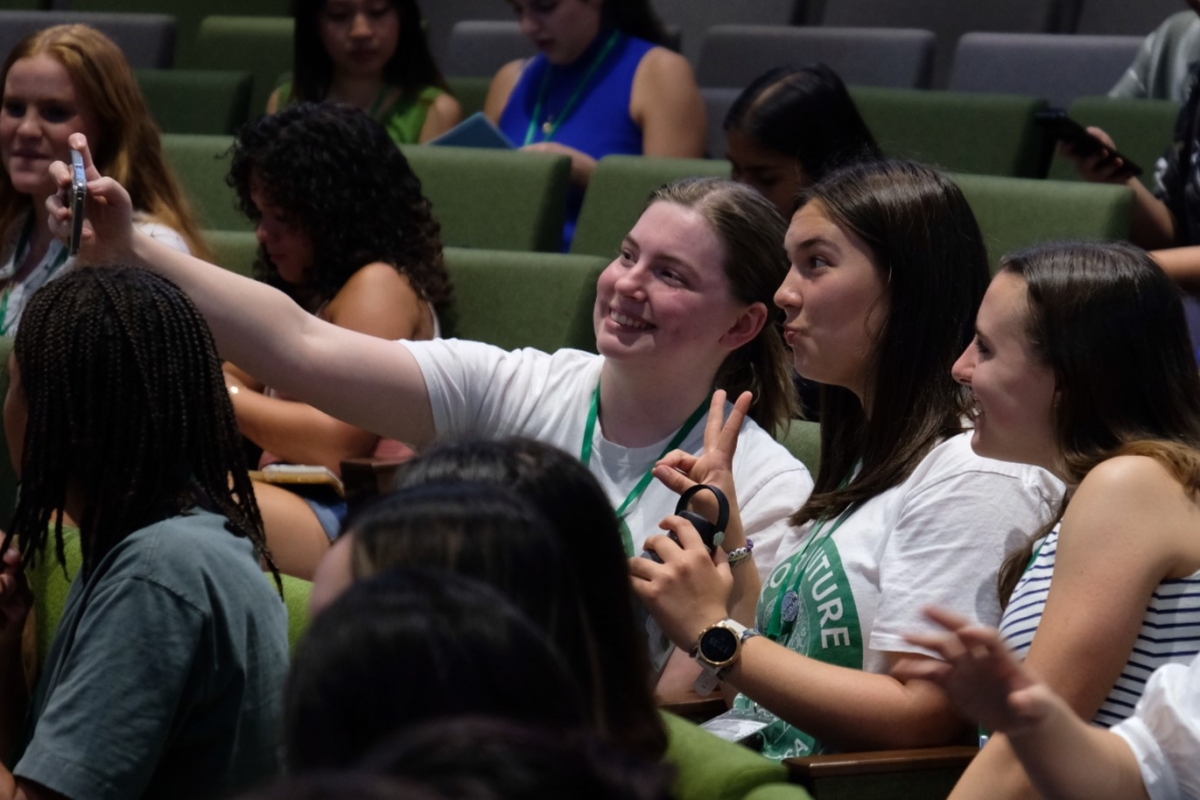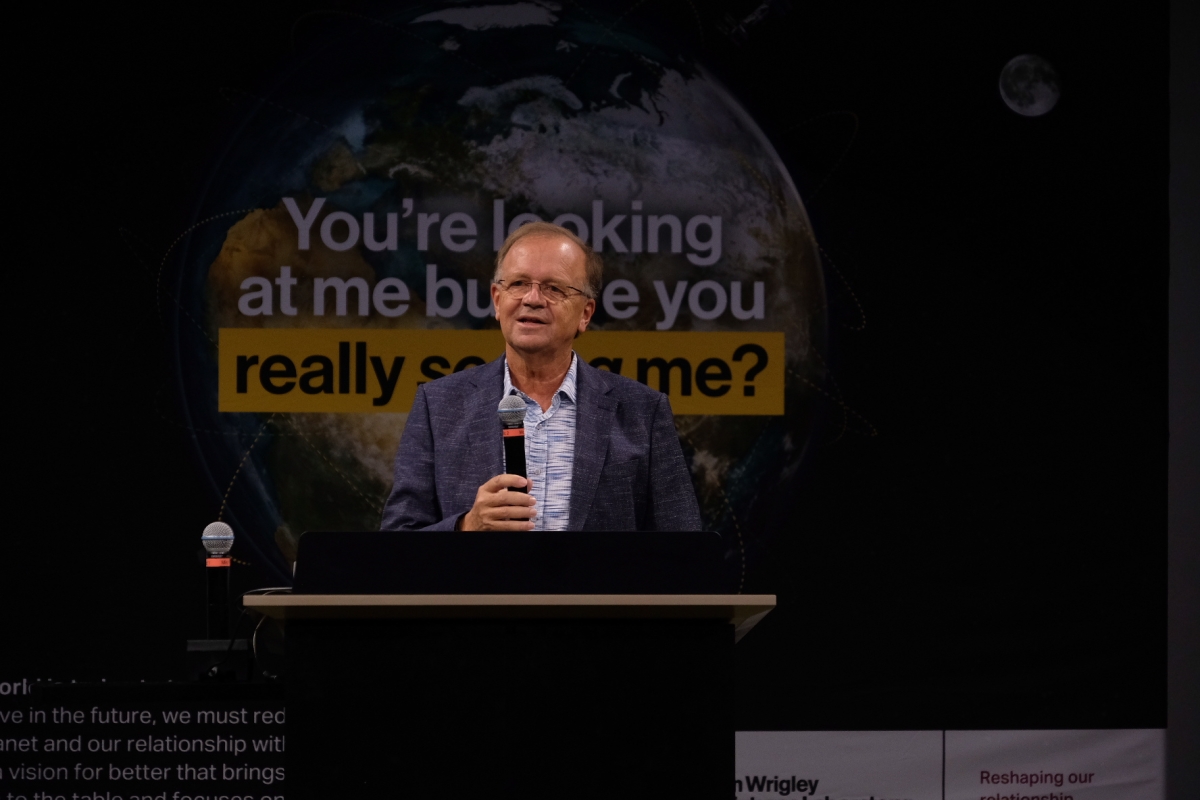Sustaining connections: ASU alumnae bring youth climate conference to their alma mater

From left: Liz Quigley and Hailey Campbell at the Walton Center for Planetary Health during LCOY USA. Photo courtesy of ASU College of Global Futures
When Hailey CampbellHailey Campbell graduated with a Master of Sustainability Solutions from the School of Sustainability in 2021. and Liz QuigleyLiz Quigley, a Barrett, The Honors College graduate, dual-majored and received a bachelor’s degree from the W. P. Carey School of Business and the School of Sustainability in 2023. faced an energetic audience in the Walton Center for Planetary Health on Friday, it was hard not to reflect on how far they had come. Recent graduates of Arizona State University’s College of Global Futures, the alumnae had successfully gathered approximately 150 young climate leaders — many of them students themselves — to their alma mater to discuss some of the most pressing challenges of our time.
Local Conference of Youth (LCOY) USA took place at ASU from Sept. 13–15. At the event, coordinated with support from Campbell and Quigley, youth delegates produced a set of policy demands to eventually be presented at the 29th United Nations Climate Change Conference.
This conference, known as COP29, is widely recognized as the most significant summit on climate change. However, many young people are not afforded the opportunity to attend, let alone have their voices heard. LCOY, and the subsequent Conference of Youth, seeks to bridge that gap and ensure young people’s voices are represented both nationally and internationally.
Campbell and Quigley have helped organize LCOY USA since its inception three years ago. When engaged in early discussions about appropriate venues for this year’s event, Quigley said ASU came to mind immediately. The last two LCOY events were hosted on the East Coast, so a West Coast conference was due. But more importantly, record-breaking temperatures in Arizona offered a sobering backdrop to the importance of work ahead.
“There is no better place to have a conversation about climate futures than Arizona,” Quigley said. “But beyond that, there was a lot of enthusiasm about ASU because of its No. 1 sustainability and impact rankings. A lot of young people were excited to see what a university that publicly and proudly prioritizes sustainability looks like.”
ASU had already provided some funding toward LCOY USA in 2023, so it seemed natural to expand the partnership. It did not take long for ASU's Julie Ann Wrigley Global Futures Laboratory to agree to host this year’s event, and the event successfully kicked off in an auditorium deeply familiar to Campbell and Quigley — they had both participated in student panels in that very room as students.
Young people aged 14–35 were invited to apply as delegates, and those selected to participate were recognized for their engagement and leadership in the climate space. One of these students was Emma Ellexson, a freshman studying sustainability with the School of Sustainability at ASU. Ellexson said the event was an inspiring learning experience.
“I went into this event without any experience in writing policy, so it was really encouraging to learn as I went and see other people around my age guide these conversations,” said Ellexson, who is also a Global Futures Impact Scholar. “Seeing that Hailey and Liz were ASU graduates was really cool — they openly talked about how they go to COP (Conference of the Parties) and talk with the negotiators. I hadn’t fully realized that yes, people like me can do that.”
Campbell said that one of her first major dives into climate change policy came from her attendance at COP, where ASU enabled and encouraged her attendance as a student.
In addition to offering space for the LCOY conference, the event also featured a welcome speech from Peter Schlosser, the vice president and vice provost of Global Futures at ASU.
“As the generation that will inherit the consequences of today’s environmental decisions, your ability to mobilize communities, innovate solutions and challenge the status quo is already driving transformative change,” Schlosser said.
Schlosser emphasized the importance of more established generations, including his own, making space for young people in determining humanity’s planetary outcomes. Arizona Sen. Mark Kelly echoed the need for a collaborative approach to climate solutions in a prepared video for the event.
After the first day of the event, the remainder of the conference was guided solely by the younger delegates. The outcomes from the event were both physical and experiential: The group produced their draft policy demands, but also collaborated with a like-minded group of individuals in similar phases of life.
“LCOY is for youth, by young people,” Campbell said. “So many young people are really frustrated with the way things are going when it comes to climate change. LCOY empowers young people to get and stay involved, but it’s also a space for creating hope.”
More Environment and sustainability

A world full of plastic ... not fantastic
Editor’s note: This is the seventh story in a series exploring how ASU is changing the way the world solves problems.When Timothy Long’s kids were growing up, he never let them toss…

Team wins $10M XPRIZE Rainforest competition for novel solution
Several Arizona State University experts are on a team that created a new way to put a price on the rainforest in order to save it, and on Friday they won the top award in the prestigious $10 million…

ASU President Michael Crow named to TIME100 Climate list
Arizona State University President Michael Crow has been named to the 2024 TIME100 Climate list of leaders and innovators driving real climate action.The list includes leaders across a range of…



